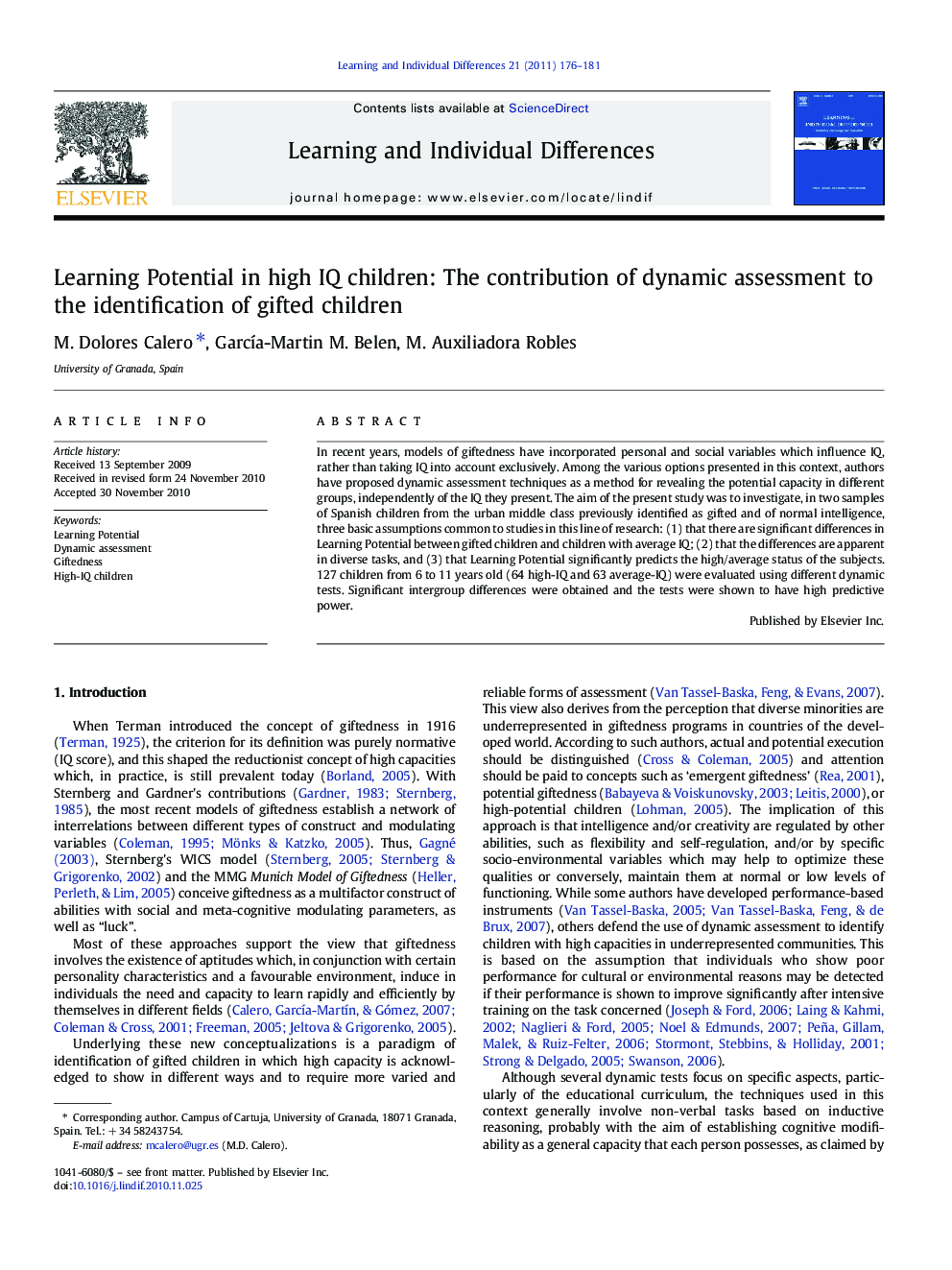| Article ID | Journal | Published Year | Pages | File Type |
|---|---|---|---|---|
| 365309 | Learning and Individual Differences | 2011 | 6 Pages |
In recent years, models of giftedness have incorporated personal and social variables which influence IQ, rather than taking IQ into account exclusively. Among the various options presented in this context, authors have proposed dynamic assessment techniques as a method for revealing the potential capacity in different groups, independently of the IQ they present. The aim of the present study was to investigate, in two samples of Spanish children from the urban middle class previously identified as gifted and of normal intelligence, three basic assumptions common to studies in this line of research: (1) that there are significant differences in Learning Potential between gifted children and children with average IQ; (2) that the differences are apparent in diverse tasks, and (3) that Learning Potential significantly predicts the high/average status of the subjects. 127 children from 6 to 11 years old (64 high-IQ and 63 average-IQ) were evaluated using different dynamic tests. Significant intergroup differences were obtained and the tests were shown to have high predictive power.
Research Highlights► The Learning Potential Assessment has been used to identify children with high ability in population Disadvantaged. ► This application is based on the assumption that children with high ability are more L P regardless of their IQ. ► These assumptions have not been proven in not-disadvantaged populations. ► This work shows that children with high IQ have a greater potential for learning that children of normal intelligence. ► Moreover, this potential is shown in different tasks. ► These results validate the initial use of these techniques.
